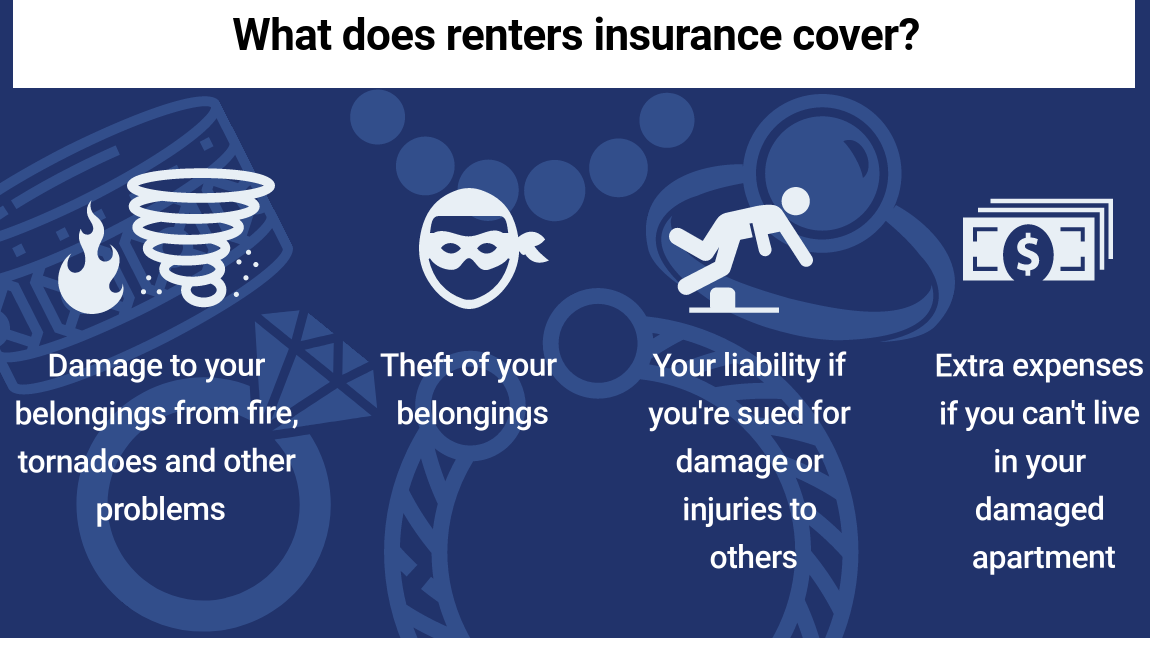Index Surge: Amplifying Your Insights
Stay updated with the latest trends and news across various industries.
What Renters Insurance Won't Cover: Surprising Realty Checks
Discover the shocking gaps in renters insurance coverage that can leave you vulnerable. Don't miss these surprising realities!
Top 10 Items Not Covered by Renters Insurance: What You Need to Know
When renting a home or apartment, many tenants believe that renters insurance covers all of their belongings. However, it’s crucial to understand that certain items are often excluded from standard policies. Some of the top items not covered by renters insurance include valuable collectibles such as art, coins, or antiques, which may require separate policies due to their high value. Additionally, motor vehicles are typically not included, as they are usually covered under auto insurance. Other common exclusions can include health and wellness equipment, such as bicycles and exercise machines, and items used for business purposes.
Natural disasters can pose a significant risk to renters, yet many renters insurance policies do not cover damage from events such as earthquakes or floods. It's essential for tenants living in high-risk areas to consider additional coverage for these specific risks. Furthermore, losses due to general wear and tear or inadequate maintenance are also not covered under renters insurance. Lastly, while personal liability protection is a key benefit of renters insurance, it may not cover incidents involving water damage caused by sewer backups or flooding in basements. Understanding these limitations can help renters adequately prepare and ensure they have the right coverage for their needs.

Is Your Home Business Protected? Understanding Renters Insurance Limitations
When running a home business, it's crucial to understand the limitations of renter's insurance. While this type of insurance is designed to protect personal property within your rented space, it often falls short when it comes to business-related assets. For instance, most renters insurance policies cover only personal belongings, leaving business equipment such as computers, printers, and inventory vulnerable. Moreover, if your business generates income, a standard renter's policy may not provide coverage for lost income due to business interruptions caused by events like fire or theft.
Additionally, it's important to note that renter's insurance typically does not cover liability claims associated with your home business. If a client or visitor gets injured while on your premises, you may find yourself facing significant legal expenses without adequate protection. Therefore, to ensure your home business is fully safeguarded, consider investing in a business insurance policy or an endorsement to your existing renter's insurance that specifically addresses your needs. This way, you can operate your business confidently, knowing you have the right coverage in place.
Common Misconceptions About Renters Insurance: What It Doesn't Cover
Many individuals believe that renters insurance covers everything within their rental unit, but this is not entirely true. Most policies typically cover personal property against risks like fire, theft, or vandalism, but they often have exclusions. For instance, damage caused by natural disasters such as floods or earthquakes is usually not covered unless you purchase additional coverage. Additionally, many people assume that their insurance will protect them in case of damage caused inadvertently to the rental property itself; however, that is typically the landlord's responsibility and not the renters' insurance.
Another common misconception is that renters insurance covers roommates automatically. While some policies may allow for additional coverage for other residents, this is not a given. Roommates generally need their own individual policies since renters insurance typically provides coverage solely for the named insured. Furthermore, liability coverage does not extend to shared property unless specified in the policy. To avoid surprises, it is crucial for renters to read their policy carefully and understand what is and isn’t included.